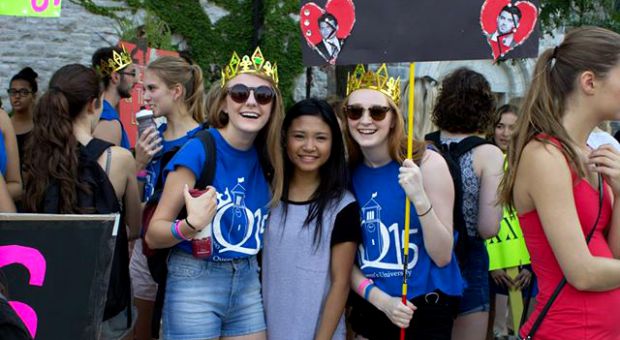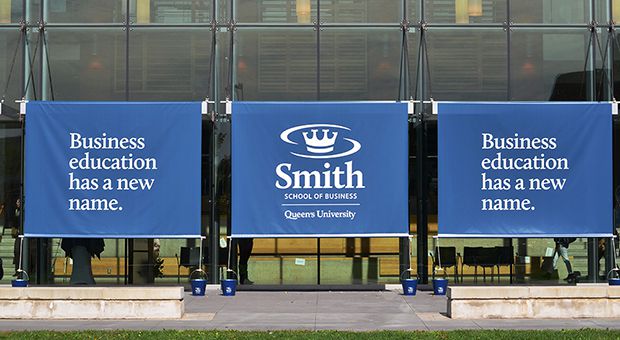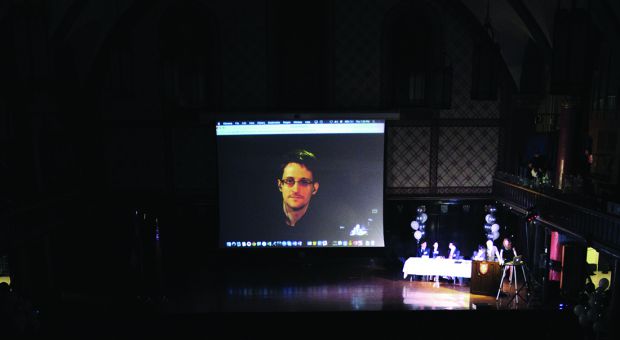
News: Year in Review 2015-16
This year The Journal’s news section covered a variety of topics ranging from academic freedom to Bieber Fever. The following is a collection of the news highlights from the year.
Professor’s academic freedom violated, report finds: June 2, 2015
In April 2015 the Canadian Association of University Teachers (CAUT), a nationwide union association, published an extensive 20-page investigation into a 10-year case between Queen’s and one of its own employees, professor Morteza Shirkhanzadeh.
The report concluded that the University had taken actions against Shirkhanzadeh to silence him from exposing multiple cases of research misconduct within its Engineering Department.
In August, Shirkhanzadeh was suspended for three days without pay for “workplace harassment” based on the emails he sent to various members of the University Administration following up on the allegations he made of misconduct.
Shirkhanzadeh has since filed grievances against the University.
“We conclude that there is a pattern of retaliation against Professor Shirkhanzadeh in response to his allegations of fraud and misconduct.” — CAUT Report
Click here to view the timeline in fullscreen.
Former prison inmates hope Queen’s will acknowledge past unethical experiments: July 28, 2015
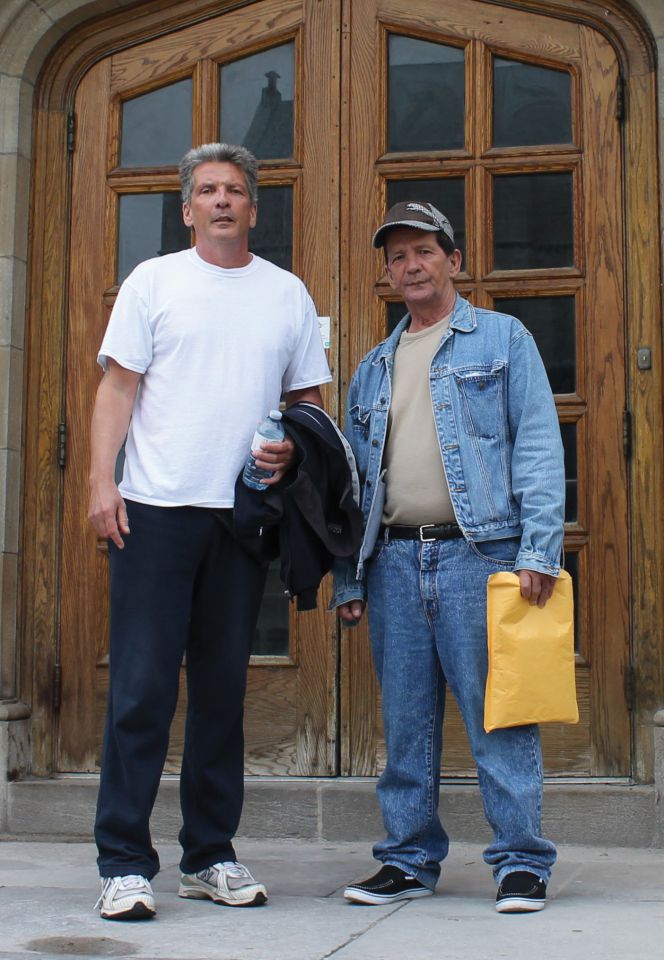 This summer, two brothers, both former inmates of Canadian penitentiaries, asked Queen’s University to formally recognize its involvement in unethical experiments that took place roughly 40 years ago.
This summer, two brothers, both former inmates of Canadian penitentiaries, asked Queen’s University to formally recognize its involvement in unethical experiments that took place roughly 40 years ago.
James and Donny Hogan, ages 58 and 65 respectively, claim to have been used as subjects for scientific experiments run by Queen’s University researchers and funded by the Canadian government.
Neither Queen’s nor Canada’s Penitentary Museum in Kingston could provide documentation on the experiments, and The Journal was unable to find any documents relating the brothers to specific experiments. However, an investigative series published by the Ottawa Citizen, and a sociological study by University of Alberta professor, confirmed the existence of such experiments and Queen’s involvement.
The two met with Vice-Principal (University Relations) Michael Fraser who later told The Journal that the University needed more information to look further into the matter.
Frosh Week incidents cross criminal line: Sept. 7, 2015
Students flooded University Ave. on consecutive nights during Frosh Week, drawing increased police attention to the area. Two criminal incidents were reported along with alcohol related tickets issued.
On the Sunday night, as police patrolled the area in a cruiser, a beer bottle was thrown at their vehicle. Two nights later, as a Kingston resident drove through the crowded street, a large group of students began to shake her vehicle, causing damage.
In response to the incidents, Principal Woolf sent all students a strongly worded email later that week.
“No one wants to see the tragic alcohol-related events of 2010 repeated.” — Principal Woolf in an email to all students following incidents in the University District
Grease Pole: Sept. 13, 2015
EngSoc’s grease pole, used annually as part of their Orientation Week traditions, was stolen by a group of engineering students from U of T just hours after the class of Sci ’19 completed their climb.
The rumours are true, our beloved Grease Pole has been stolen by our pranking rivals over at UofT and @Skule https://t.co/Oaq9Ac0tEA
— Engineering Society (@EngSocQueens) September 14, 2015
Passing of first-year student: Sept. 17, 2015
Flags were lowered on campus during the first week of classes after the passing of first-year student, Andrea Mariano.
Mariano’s family indicated that the cause of her death was related to an anaphylactic allergic reaction. The University has since undertaken a review of its allergy-related food policies.
Non-academic discipline system set for review: Sept 18, 2015
Following an external review of the University’s non-academic discipline system (NAD) — also referred to as non-academic misconduct — expert Harriet Lewis identified several areas in the system for improvement, in his report released in May.
In September, the University’s Board of Trustees decided to initiate an internal review of the system, with Principal Woolf overseeing the review. While under review, an interim NAD protocol has been implemented, with the establishment of a central intake office coming as one of the major changes.
One of the longtime features of the old NAD system is the AMS’s involvement in student discipline.
In the past, the AMS’s Judicial Affairs Office would receive cases directly from complainants, like Student Constables, Campus Security and others. But in the interim protocol, the AMS is only handed cases at the discretion of the University’s central intake office.
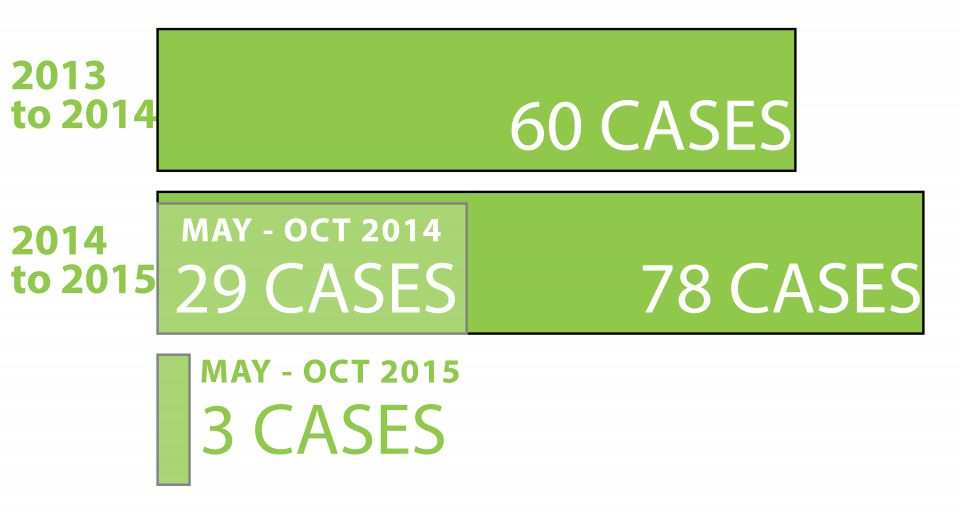 The decrease in student involvement in the process has been a concern for many student leaders.
The decrease in student involvement in the process has been a concern for many student leaders.
In past years AMS reported up to 78 cases received from May to October, but only three cases were delegated to the AMS this year. A final report is scheduled for publication this May.
Investigating fowl play: Sept. 18, 2015
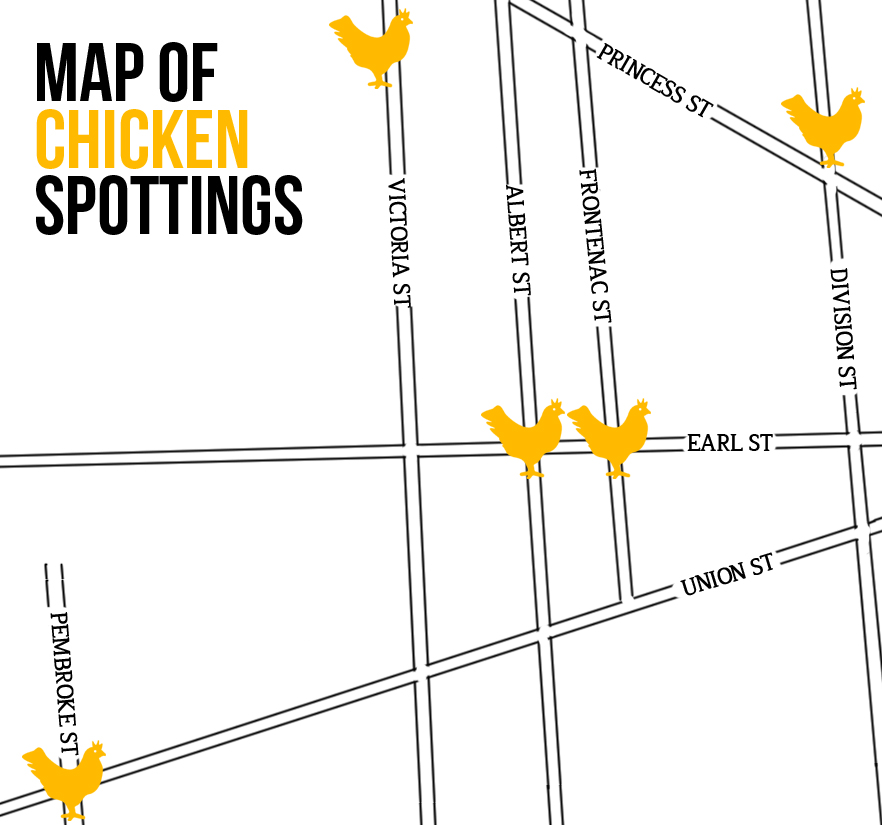 Just before 11 a.m. on Sept. 9, Hanna Glover, ArtSci ’16, posted a photo of the birds on the “Lost and Found Queen’s” Facebook page. The chickens were roaming freely in her yard on Victoria St.
Just before 11 a.m. on Sept. 9, Hanna Glover, ArtSci ’16, posted a photo of the birds on the “Lost and Found Queen’s” Facebook page. The chickens were roaming freely in her yard on Victoria St.
School of Business renamed following $50 million donation: Oct. 1, 2015
Students, faculty and staff alike filled Goodes Hall on Oct. 1 in anticipation of a surprise announcement from Queen’s School of Business.
The surprise: a historic $50 million donation to the School of Business — the largest donation to a Canadian business school — and the renaming of the school in honour of the donor, Stephen J.R. Smith.
What came as even more of a surprise to most was that Smith never went to Queen’s School of Business. He had in fact graduated from Queen’s in 1972 with a Bachelor of Science (Honours) in electrical engineering. Nonetheless, the announcement generated great excitement all across campus.
Queen’s professor awarded Nobel Prize for Physics: Oct. 6, 2015
It was a little after 5 a.m. on Oct. 6 when a phone call from Stockholm roused Dr. Arthur McDonald from sleep.
The call was from the Nobel Committee for Physics to inform the Queen’s professor that he — along with Japanese scientist Takaaki Kajita — was the recipient of the 2015 Nobel Prize for Physics.
McDonald has been a researcher for Queen’s since 1989 and was made a professor emeritus in 2013.
As the Director of SNOLAB in Sudbury, McDonald’s research has focused on neutrinos — a fundamental particle that scientists previously believed held no mass.
McDonald has proven that neutrinos can oscillate between identities while traveling between the sun and the earth. In layman’s terms, his discovery demonstrates that neutrinos hold mass — a major breakthrough that has shaken the previous Standard Model of particle physics.
Since his 5 a.m. surprise call, McDonald has collected other significant awards, including the 2016 Breakthrough award in Fundamental Physics and a Companion of the Order of Canada — the highest level of the order.
Queen’s celebrated McDonald’s achievements on Dec. 3, just days before he was set to receive his Nobel prize in Stockholm on Dec. 10.
“She said, ‘gee Grandpa, I didn’t realize how smart you are!’” — Arthur McDonald, describing his granddaughter’s reaction to the news
Takaaki Kajita & Arthur B. McDonald receiving the 2015 #NobelPrize in Physics, 10 December. @UTokyo_News_en @queensu pic.twitter.com/QGeTsRl15z
— The Nobel Prize (@NobelPrize) December 10, 2015
Queen’s closes theology programs: Nov. 3, 2015
After nearly 175 years in existence, Queen’s has closed the doors on its theology programs.
In the 1830’s, Kingston Presbyterians presented their plans to educate ministers and youth on theology, literature and science to the 13th Parliament of Upper Canada. In 1841 a royal charter issued through Queen Victoria made their plans official, and Queen’s University was born as a Presbyterian religious institution.
The decision to scrap the program was made on Nov. 3, when the University Senate voted to end theology programs in the School of Religion, which include the Master of Theological Studies (M.T.S.), Master of Divinity (M.Div.) and Bachelor of Theology (B.Th.).
The closure was primarily due to the lack of interest in the program. In 2014 enrolment into the program was suspended and only two part-time students remained in the program.
Richard Ascough, the director of the School of Religion, said the history of the program will continue to be upheld.
Accidentally recorded Stauffer theft goes viral: Nov. 6, 2015
It’s not unheard of that unattended items in Stauffer Library get stolen, but it’s rare that the thief is caught by a laptop webcam.
While filming a short video on his computer, Daniel Hu, ArtSci ’16, stepped away from his laptop, returning to find some of his belongings were taken. Hu was able to retrieve his belongings after posting the video online.
Snowden visits campus via live feed: Nov. 12, 2015
“Progress often begins as an outright challenge to the law. Progress in many cases is illegal.” — Edward Snowden to Queen’s students gathered in Grant Hall on Nov. 12
Queen’s accounts on Paris attacks: Nov. 13, 2015
“I wanted to be with only French people, because we all shared that grief and state of shock.” — Charly Hunter, a French exchange student at Queen’s during the attacks
“I couldn’t believe this was happening to Paris — beautiful, sophisticated Paris.” — Lilly Sheng, Comm ’17, on exchange at the HEC School of Management, Paris
Bieber Fever: Jan. 5, 2016
On its opening night of the winter semester, the Underground was forced to close early, citing Bieber Fever as the cause. An unprecedented crowd gathered outside the nightclub for its “I’m a Belieber” event. TAPS staff took precautionary action by shutting down the event roughly an hour after opening.
Indecent Exposure: Jan. 8, 2016
Kingston Police (KP) recorded a total of seven indecent exposure cases occurring in the University District during the 2015 calendar year. KP couldn’t say definitively whether the cases are connected but in all seven cases the male perpetrator exposed himself to one or more females.
Team LWT voted AMS exec, Cam Yung voted Rector: Jan. 28, 2016
After the second round of ballot counting, Team LWT — consisting of Tyler Lively for president, David Walker for vice president (operations) and Carolyn Thompson for vice president (university affairs) — came out victorious by 0.4 per cent, or 28 votes more than Team CSG.
After the initial excitement settled, Team CSG attempted to appeal the results, claiming that the AMS Elections Team had failed to rule fairly on violations of election policy. CSG’s appeal was denied.
Cam Yung was voted in as Queen’s 35th Rector with 58.4 per cent of votes.
Rejected fee adds to StuCon troubles: Jan. 29, 2016
Already one of the AMS’s toughest services to recruit for, work conditions for Student Constables (StuCons) won’t be getting much better any time soon. This winter, the service failed to secure a fee increase through a referendum vote, which was required to increase wages for StuCons.
Queen’s student & medical resident rescue elderly woman from drowning: Feb. 3, 2016
“We weren’t sure really what was going on, we weren’t sure if we would be able to get her out once we got there, we weren’t sure if she was conscious” — Sam Roe, Sci ’19
“She is looking at me like, ‘where am I, how did I get here, and who are you’ but there is an understanding that I am there to get her out” — Josh Tobe, a Queen’s Family Medicine resident
Queen’s approves sexual violence policy: March 4, 2016
Roughly 15 months after a Toronto Star investigation named Queen’s among 69 other Canadian universities that lacked a comprehensive sexual assault policy, Queen’s has finally approved an official policy.
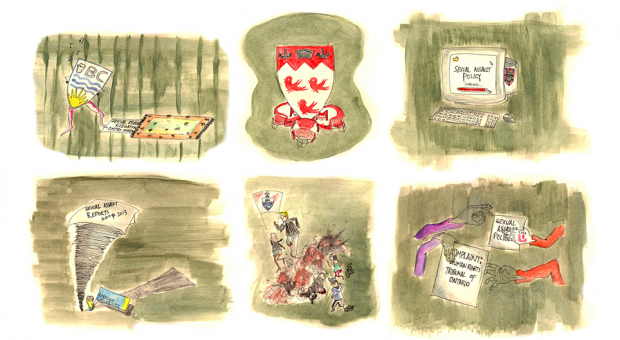 Queen’s joins Ryerson and York University as three of the six major universities the Star named in their feature story. McGill, U of T and UBC have yet to implement full policies.
Queen’s joins Ryerson and York University as three of the six major universities the Star named in their feature story. McGill, U of T and UBC have yet to implement full policies.
The new policy was implemented just days before the Ontario provincial government passed legislature that requires all Ontario post-secondary institutions to develop a standalone sexual violence policy by January 2017.
The policy is just one of 34 recommendations listed in the Queen’s Sexual Assault Prevention and Response Working Group’s final report, which was published this past summer.
Among the listed recommendations is the creation of centrally located “Sexual Assault Response and Prevention Centre”, and hiring of a Sexual Violence Prevention and Response Coordinator.
Although a great deal of progress has been made, outgoing Rector Mike Young said there’s still work to be done by the University to address sexual assault on campus.
To see the timeline in full screen, click here.
Physical & Health Education program suspended: March 11, 2016
Queen’s will not be admitting any new students into its Physical and Health Education program starting September 2017.
The decision was made at the Arts and Science Faculty Board meeting in March following brief consultation with students in October 2015.
Prior to the decision, a mass email was sent to students and alumni notifying them of the proposed motion. The program will be under review while admissions are suspended.
2016 student elections, Andrea Mariano, Arthur McDonald, Bieberfever, Chicken, Edward Snowden, Frosh Week, Grease Pole, Heroics, indecent exposure, Morteza Shirkhanzadeh, NAD, Paris attacks, Physical and Health Education, Prison experiments, sexual assault policy, Smith School of Business, Stauffer Library, StuCons, Theology, year in review
